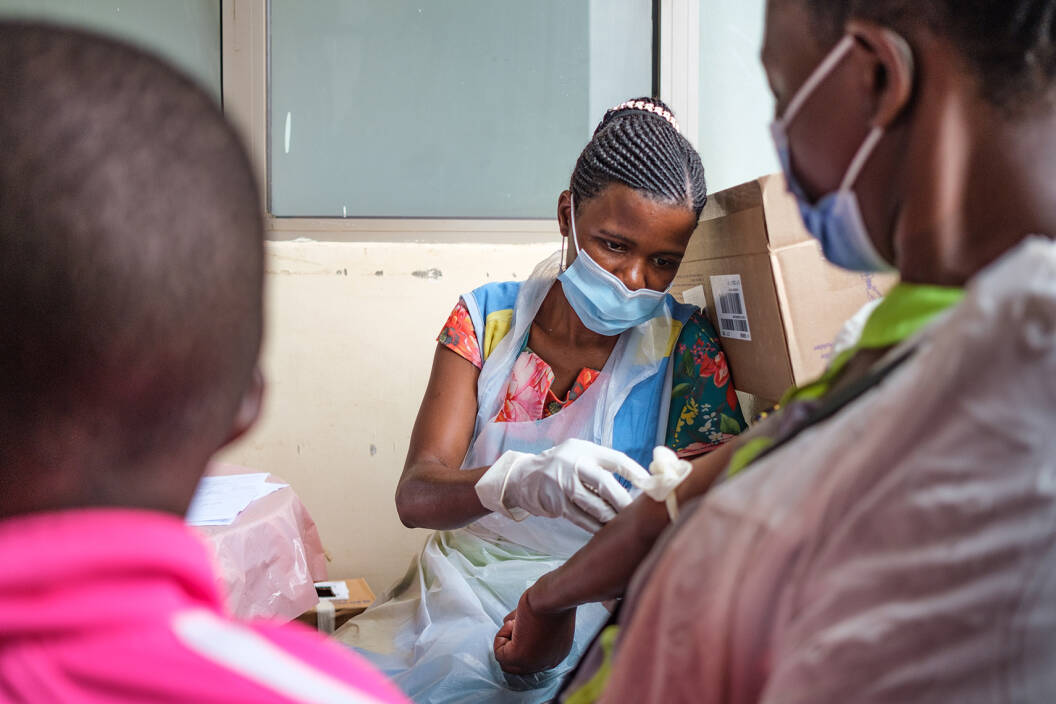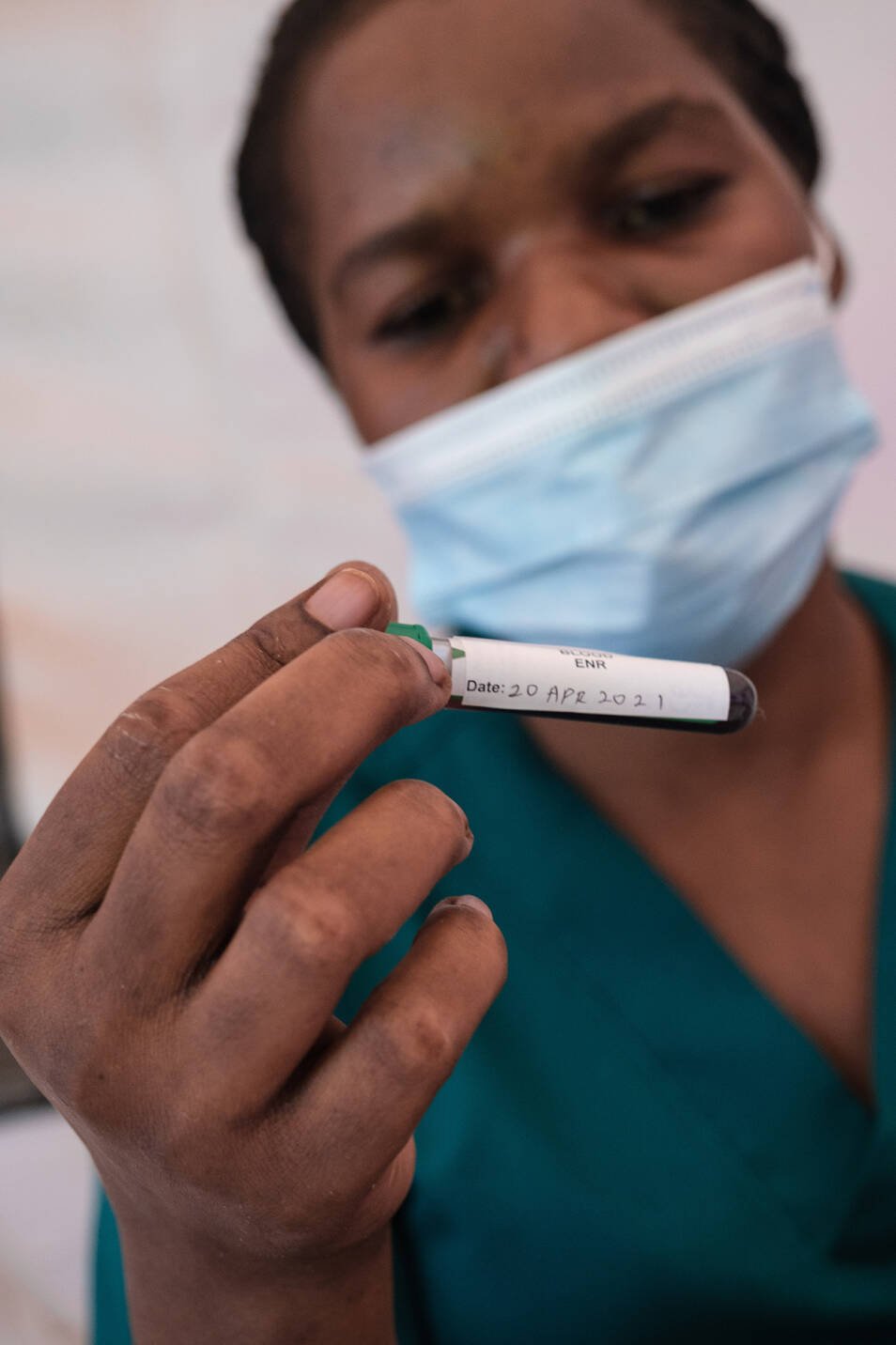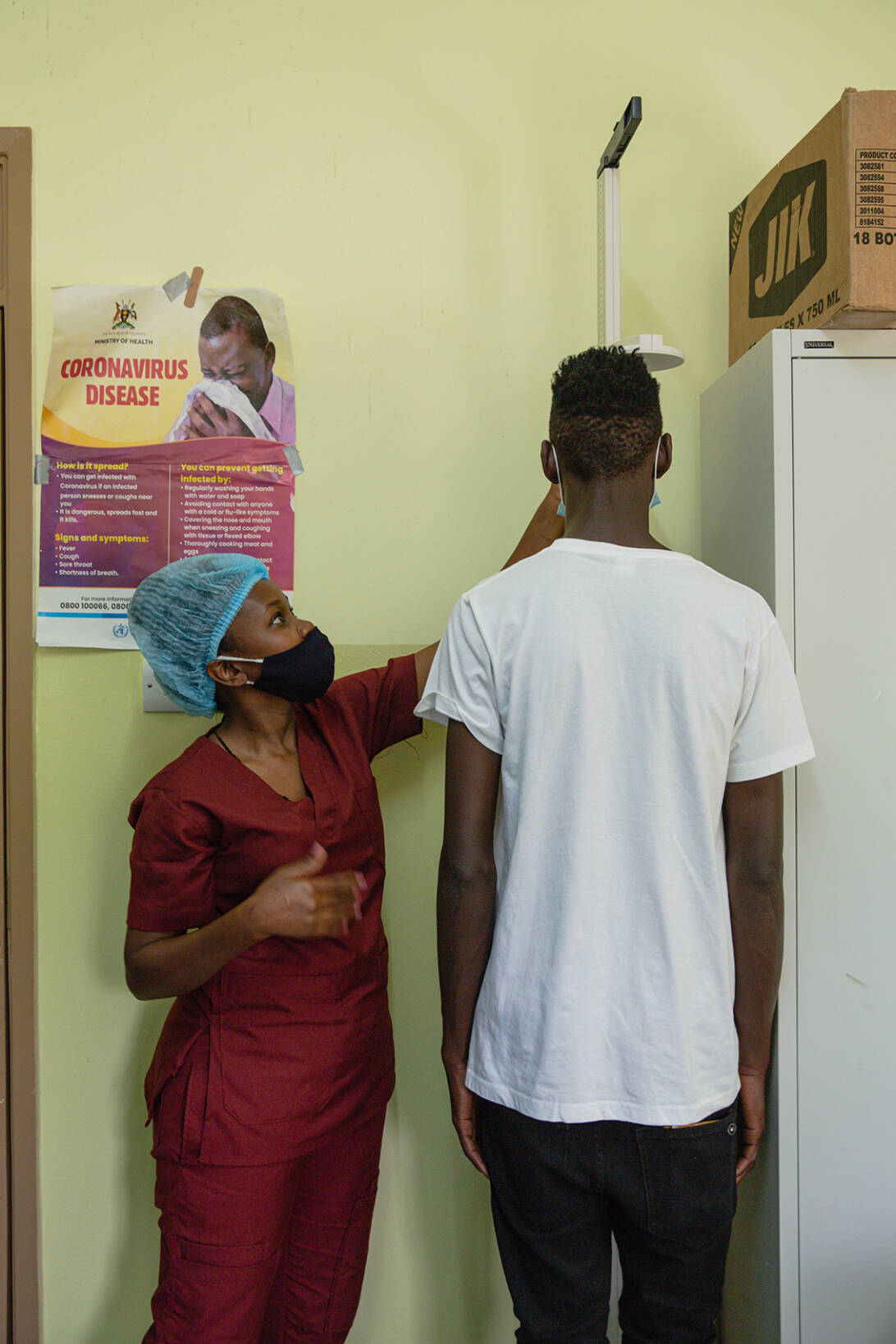
The Profile-Cov project has been tracking the dynamics of immune responses to SARS-CoV-2 in an African population, generating evidence to inform vaccine development and use. Notably, it found an association between co-infection with parasites and protection against progression to severe COVID-19. Unravelling the mechanisms underlying this protection could suggest new ways to protect against severe disease. In addition, the findings suggest that parasite infections might have implications for the efficacy of COVID-19 vaccines in Africa.
The ITAIL-COVID-19 also focused on immune responses to SARS-CoV-2. It screened for SARS-CoV-2 antibodies in a sample population in the Republic of Congo during the early months of the pandemic, to provide insights into the spread of infection and to inform epidemic management in the country. The study found that a high proportion of those screened, nearly 20%, had antibodies to SARS-CoV-2, suggesting that many infections were not being detected or were asymptomatic.
Building on the work of the PREPARE study, the periCOVID-Africa project has been collecting data on COVID-19 infections in pregnant women and their children in Uganda, Kenya, Malawi, The Gambia and Mozambique. The project has also found that lockdown measures were associated with an increase in pregnancy complications and adverse foetal and infant outcomes, probably because fewer women had access to healthcare services. The findings emphasise the need for pandemic responses to consider potential impacts on existing services.
The Covid-19 HCW project, which monitored a cohort of healthcare workers exposed to COVID-19 patients at an academic hospital in South Africa, found that more than 40% of healthcare workers had evidence of SARS-CoV-2 infection during the first six months of the pandemic. This is a higher rate than seen in Europe and North America, and probably reflects poor ventilation and crowded wards. Rates elsewhere on the continent are likely to be higher than in South Africa, a relatively well-resourced African country. The study team’s later work found that past infection and vaccination provided limited protection against infection with the omicron SARS-CoV-2 variant.
In March 2021, EDCTP organised a webinar enabling its COVID-19 grant holders to share information and their experiences. Presentations and videos of the webinar are available on the EDCTP website. In 2021, EDCTP also collaborated on a new funding initiative with the Botnar Research Centre for Child Health (BRCCH), which had independently funded COVID-19-related projects. Through this partnership, three further projects, based on collaborations across BRCCH- and EDCTP-funded projects, received further financial support.

Pivoting to COVID-19
Important contributions to the COVID-19 response have also been made by the EDCTP’s pandemic preparedness networks (PANDORA-ID-NET and ALERRT) and its Regional Networks of Excellence. The networks have facilitated the rapid collection of standardised data on SARS-CoV-2 infections and organised multiple activities to share knowledge and build capacity to respond to the pandemic.
Similarly, several EDCTP fellows have been an important source of expertise in sub-Saharan Africa. For example, Senior Fellow Roma Chilengi, was appointed Special Advisor for COVID-19 to President Hakainde Hichilema of Zambia. In addition, Dr Misaki Wayengera is Chair of the Ugandan Ministry of Health and the national task force's scientific advisory committee on COVID-19. Fellows have also led important studies of COVID-19. For example, the unit led by EDCTP fellow Dr Catherine Orrell in Cape Town, South Africa, took on responsibility for two network studies funded by the US National Institutes of Health (NIH), to generate data on immune responses during COVID-19 infection and recovery, and is contributing to a study exploring the impact of MMR vaccination on COVID-19 prevention.
These examples illustrate the benefit of research capacity building, which has provided a foundation on which to build a diverse portfolio of studies to answer important questions about COVID-19 in an African context, as well as the expertise to guide national responses to the pandemic.
scroll down
Six-month EDCTP funding for the ANTICOV project, coordinated by the Drugs for Neglected Disease initiative (DNDi), was pivotal in enabling it to put in place mechanisms for the rapid launch of international multicentre trials of COVID-19 therapeutics in sub-Saharan Africa. With EDCTP funding, the project was able to complete the study protocol, secure rapid reviews by regulatory and ethics authorities, and begin preparing trial sites. The ANTICOV Consortium went on to secure major international funding, undertaking the largest clinical trial in Africa of treatments for mild to moderate COVID-19, spanning 13 countries.
At the start of the COVID-19 pandemic, EDCTP moved swiftly to enact its Emergency Funding Mechanism. Funding was awarded to 27 international consortia working in 26 African countries (an additional COVID-19-related project was funded through the Participating States-Initiated Activities (PSIAs) mechanism). Several of these projects draw upon existing EDCTP project researchers, infrastructure and study populations. These projects have been delivering results shedding important light on the pandemic in Africa and how it can best be controlled.
Through its Emergency Funding Mechanism, EDCTP has been supporting multiple projects answering key questions about COVID-19 in Africa, while other EDCTP-funded consortia have also pivoted to work on the pandemic.

Combating COVID-19
